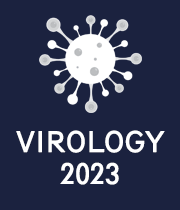Virology 2023 Important Update
This is to inform that Virology 2023 event is now merged with Infection 2023 which will be held on same dates June 21-22, 2023 in Rome, Italy and virtually.
For complete details about the merged event, please visit: https://infectiouscongress.com
For further details, please contact us at infectious@magnusconference.com or call + 1 (702) 988 2320
Virus-Cell Interactions and Cellular Responses
Viruses are obligate intracellular parasites that are inextricably linked to their host cells. Viral–host cell interactions allow viruses to modify cells for their own purposes, but they also give the host cell a way to fight virus infection. Because of the close connection between host and viral processes, cell biology and virology have frequently inspired each other. Many advances in cell biology have been made possible by the study of viruses, whereas our fundamental understanding of the virus life cycle is inextricably linked to cell biology concepts. Virus-host interactions have evolved to allow viruses to evade or resist antiviral responses from their hosts. During viral replication, pathogen-associated molecular patterns (PAMPs) are generally produced, which are easily detected by immune cells.
- Virus-Host Cell Interactions
- Interactome
- Innate Immunity
- Interferon
- Cytokine Storm
- Inflammasome

